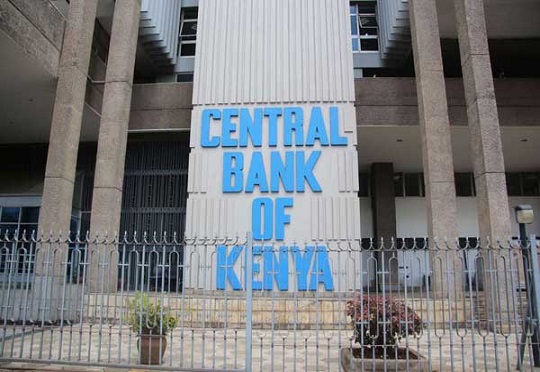Banks
Kenya Postpones Adoption of CBK Digital Currency

Kenya has postponed the Central Bank Digital Currency’s adoption because it believes alternative cutting-edge solutions may be able to continue to address the existing payment-related problems.
With De La Rue leaving the local market, the CBDC was seen as the panacea that would save Kenya billions by lowering the quantity of hard currency printed.
Central bank digital currencies are digital tokens that are issued by a central bank and are similar to cryptocurrencies.
They are based on the value of a country’s government-issued currency, which is not backed by a physical good like gold.
An electronic version of a sovereign currency, a CBDC issued by the Central Bank of Kenya would be a liability on the bank’s balance sheet but an asset to holders.
The expense of printing money would be eliminated by using digital currency, according to experts, who also predicted that it would reduce transaction costs and make it simpler for central banks to enact monetary policy in real time.
However, CBK has expressed worries about the up-front costs of its deployment and the shift in emphasis for the adoption of the currency, calling it a “not a compelling priority.”
“Further, central banks that were first to roll out CBDCs have recently faced challenges that have hampered implementation. Additionally, recent instability in the global crypto assets market has amplified concerns and the need for a careful review of the innovation and technology risks,” CBK said in its report after seeking views from the public.
In February 2022, CBK issued a Discussion Paper on Central Bank Digital Currency and sought views from the public on the potential applicability of a Central Bank Digital Currency (CBDC) in Kenya.
The objective was to inform policy decisions and public acceptance regarding the innovation.
CBK has now compiled the comments and announced the issuance of a Discussion Paper on Central Bank Digital Currency: Comments from the Public.
The country extended the implementation to the long term due to difficulties with Central Bank Digital Currency(s) (CBDCs), according to the report from the regulator.
A wide range of people, governmental organizations, commercial banks, payment service providers (PSPs), technology companies, academics, the legal community, and overseas development partners responded to the Discussion Paper in over 100 different ways.
Kenya, South Africa, the United States, the United Kingdom, the Netherlands, Germany, Switzerland, Sweden, and Japan were among the nine nations that provided responses.
The country extended the implementation to the long term due to difficulties with Central Bank Digital Currency(s) (CBDCs), according to the report from the regulator.
The state has since been persuaded to rethink the decision due to the disintermediation of banks, significant implementation costs, technical and cyber dangers, and financial exclusion.
“Respondents also highlighted the need to consider Kenya’s highly developed digital payments ecosystem and the high level of financial inclusion. Further, while a CBDC may be useful for cross-border transactions, its risks should be carefully considered,” CBK notes.
It was thought that the significant influence mobile money has had on the nation’s financial revolution would send a positive message in favor of the establishment of CBDC.
The country is not interested in issuing an e-Shilling in the near future, but it is open to CBDC innovations that could alter the current landscape, according to the Central Bank, which also claims that understanding of CBDC concerns is deepening as a result of ongoing work abroad.
“For instance, the Bank for International Settlements (BIS), the International Monetary Fund (IMF), and other central banks continue to do research and/or implement CBDC projects. Nevertheless, on the global stage, the allure of CBDCs is fading,” CBK said.
This would be in line with CBK’s goal of creating a payment system that is safe, quick, effective, and useful to Kenyans.
However, CBK will keep track of CBDC advances in order to inform its future assessments of Kenya’s need for CBDC.
The introduction of CBDCs has been delayed by the majority of central banks worldwide.
This methodical technique is in line with the strategy used by CBK.
In order to learn from their experience, CBK has also been working with other central banks to create a proof of concept for CBDCs.







